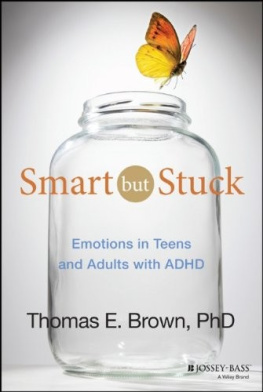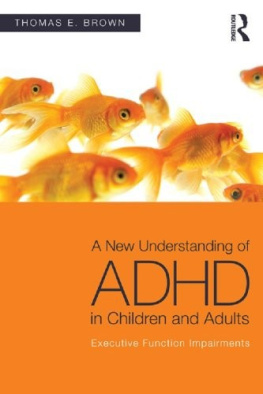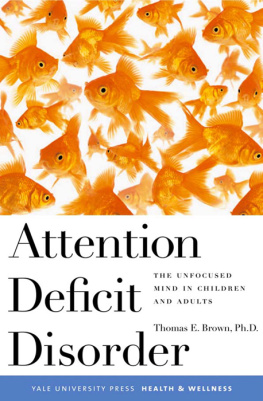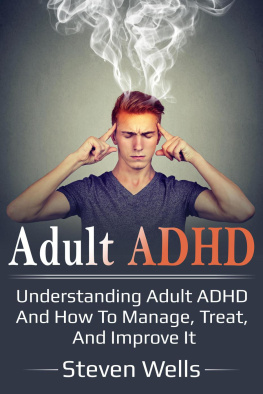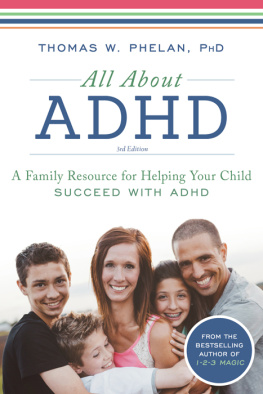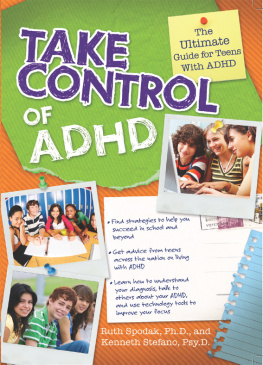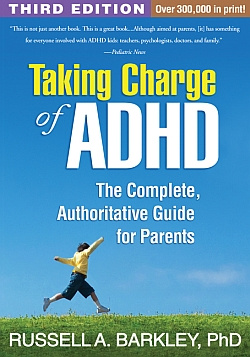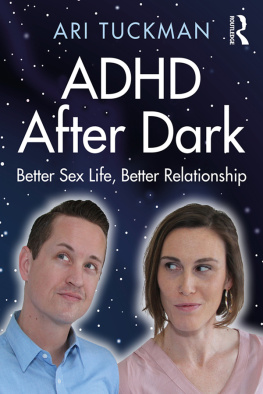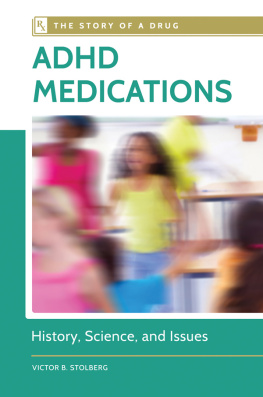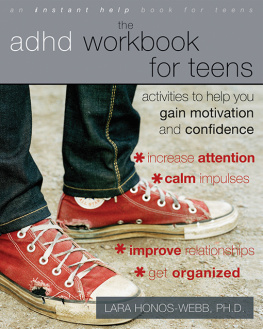Table of Contents
More Praise for Smart but Stuck
Smart but Stuck will help you get unstuck! Drawing upon a lifetime of clinical experience, Tom Brown once again strikes gold in this practical, authoritative, and, above all, helpful book. No matter where you are in your journey to success, if you have ADHD this book will help to speed you on your way. I could not recommend it more highly.
Edward (Ned) Hallowell, M.D., author, Driven to Distraction and Delivered from Distraction
This is an exceptionally important book for those coping with ADHD and family members who care about them. It addresses a much overlooked component of the disorder the importance of emotions. Clearly written, rich in detail, and full of helpful advice, this book will be beneficial to anyone with ADHD and to those who struggle to live with, understand, and help them.
Russell A. Barkley, Ph.D., clinical professor, psychiatry and pediatrics, Medical University of South Carolina; author, Taking Charge of ADHD and Taking Charge of Adult ADHD
This book, reflecting Dr. Brown's 35 years of clinical practice combined with the latest findings from affective neuroscience, is a must-read for anyone who is interested in ADHD.
James J. Gross, Ph.D., professor, psychology, Stanford University; editor, Handbook of Emotion Regulation
Dr. Brown introduces a forgotten piece in the life of those suffering from ADHD: the role of emotions. He provides an integrative and easy-to-understand view of how executive functioning impairments interact with emotional control in ADHD. He also offers thoughtful strategies to minimize the impact of these impairments.
Luis Augusto Rohde, M.D., Ph.D., president, World Federation of ADHD; professor, psychiatry, Federal University of Rio Grande do Sul, Brazil
These engaging vignettes vividly bring to life emotional difficulties that, even for very intelligent teens and adults, can lead to frustration and failure in efforts to overcome their deficits in attention, organization, and motivation. Here Tom Brown combines a reader-friendly summary of relevant research with his clinical expertise in helping people with ADHD to get on track to success.
Mina K. Dulcan, M.D., professor of psychiatry, behavioral sciences and pediatrics, Ann & Robert H. Lurie Children's Hospital of Chicago and Northwestern University Feinberg School of Medicine
Cover design by Jeff Puda
Cover image PM Images | Getty
Copyright 2014 by John Wiley & Sons, Inc. All rights reserved.
Published by Jossey-Bass
A Wiley Brand
One Montgomery Street, Suite 1200, San Francisco, CA 94104-4594 www.josseybass.com
No part of this publication may be reproduced, stored in a retrieval system, or transmitted in any form or by any means, electronic, mechanical, photocopying, recording, scanning, or otherwise, except as permitted under Section 107 or 108 of the 1976 United States Copyright Act, without either the prior written permission of the publisher, or authorization through payment of the appropriate per-copy fee to the Copyright Clearance Center, Inc., 222 Rosewood Drive, Danvers, MA 01923, 978-750-8400, fax 978-646-8600, or on the Web at www.copyright.com. Requests to the publisher for permission should be addressed to the Permissions Department, John Wiley & Sons, Inc., 111 River Street, Hoboken, NJ 07030, 201-748-6011, fax 201-748-6008, or online at www.wiley.com/go/permissions.
Limit of Liability/Disclaimer of Warranty: While the publisher and author have used their best efforts in preparing this book, they make no representations or warranties with respect to the accuracy or completeness of the contents of this book and specifically disclaim any implied warranties of merchantability or fitness for a particular purpose. No warranty may be created or extended by sales representatives or written sales materials. The advice and strategies contained herein may not be suitable for your situation. You should consult with a professional where appropriate. Neither the publisher nor author shall be liable for any loss of profit or any other commercial damages, including but not limited to special, incidental, consequential, or other damages. Readers should be aware that Internet Web sites offered as citations and/or sources for further information may have changed or disappeared between the time this was written and when it is read.
Jossey-Bass books and products are available through most bookstores. To contact Jossey-Bass directly call our Customer Care Department within the U.S. at 800-956-7739, outside the U.S. at 317-572-3986, or fax 317-572-4002.
Wiley publishes in a variety of print and electronic formats and by print-on-demand. Some material included with standard print versions of this book may not be included in e-books or in print-on-demand. If this book refers to media such as a CD or DVD that is not included in the version you purchased, you may download this material at http://booksupport.wiley.com. For more information about Wiley products, visit www.wiley.com.
Library of Congress Cataloging-in-Publication Data has been applied for and is on file with the Library of Congress.
ISBN 978-1-118-27928-1 (cloth); ISBN 978-1-118-41975-5 (ebk); ISBN 978-1-118-42176-5 (ebk)
FIRST EDITION
the author
Thomas E. Brown, Ph.D., is a clinical psychologist, assistant clinical professor of psychiatry at Yale University School of Medicine, and associate director of the Yale Clinic for Attention and Related Disorders. His award-winning book Attention Deficit Disorder: The Unfocused Mind in Children and Adults (Yale University Press, 2005) has been published in seven languages. He developed the Brown Attention Deficit Disorder Scales (PsychCorp/Pearson) and has published numerous articles in professional journals. His past books include ADHD Comorbidities: Handbook of ADHD Complications in Children and Adults (American Psychiatric Press, 2009) and A New Understanding of ADHD in Children and Adults: Executive Function Impairments (Routledge, 2013). To learn more, go to www.drthomasebrown.com.
acknowledgments
Impetus for this book was sparked in a conversation I had several years ago with my son, Dave, while we were hiking a small mountain called Sleeping Giant. He asked what I considered to be the biggest missing piece in the current understanding of ADHD. My answer was the importance of emotions. After I explained what I meant, Dave insisted: You've got to make that your next book, and you have to explain it with real-life stories of patients so people will catch on! Dave read and offered helpful comments on my initial draft of each chapter. I am deeply grateful for his nudging encouragement and love.
My administrative assistant, Lisa Dziuba, and my research assistant, Ryan Kennedy, have both contributed by assisting with countless details of organizing, checking, and preparing the manuscript as well as by helping me remain organized throughout the process of working on this project while I was also attending each day to a full schedule of caring for patients.
I am grateful also for the continuing love and support of Bobbie, my beloved wife, the light of my life. Thanks too to Liza, Abel, Nancy, Noah, and Simone, for their love, enthusiasm, and encouragement, which enrich my life.
Strong encouragement and much helpful guidance to render this book more readable have been provided generously by Margie McAneny, my editor at Jossey-Bass/Wiley. Thanks also to Tracy Gallagher for her assistance with permissions, Pat Stacey for additional helpful edits and suggestions, Michele Jones for her very careful copyediting, and Joanne Clapp Fullagar for thoughtfully guiding the book through production.
Next page
